Momentum created for aviation industry
Innovation and practice of new technologies in the production of aerospace components, with the support and technology transfer from international partners such as Boeing, Airbus, Dassault Aviation, and Lockheed Martin were important topics of discussion at the Vietnam Manufacturing Innovations Summit that took place two weeks ago in Hanoi.
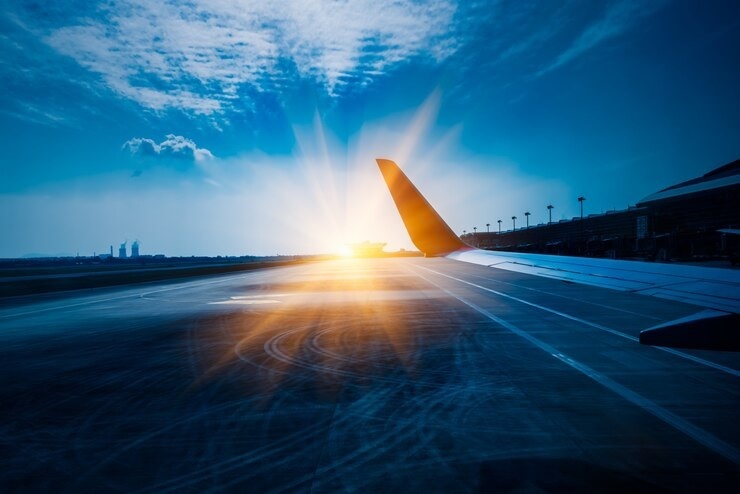 |
| Momentum created for aviation industry - illustration photo/ Source: freepik.com |
Louis Cao, managing director of Kami Manufacturing Technology Corporation and a technical partner of French aerospace group Dassault Systemes, made a visit to the Singapore Air Show with Vietnamese businesses earlier this year. He had the opportunity to engage with numerous businesses that were once tier-1 suppliers for Boeing, and recognised the appealing potential of this field, which Vietnamese enterprises have yet to explore.
“The opportunity to delve deeper into a high-tech field like aerospace will open doors for Vietnam to further develop other technological sectors,” Cao said. “In Japan, many companies supplying Boeing’s tier-1 components have expanded into the field of supplying equipment and components for semiconductor manufacturing to corporations such as ASML and Tokyo Electron.”
According to Cao, with technological support from Dassault Systemes, Kami will participate in the process of promoting innovation for both the student community and businesses who are looking to join the global supply chain in the aviation industry. In this regard, Kami will participate not only as a mere commercial company, but as an incubator, developing high-tech infrastructure for startups and businesses.
Vo Xuan Hoai, deputy director of the National Innovation Centre, stated that the Vietnamese government is ready to welcome and create new advantages for foreign direct investment enterprises to participate in promoting the innovation ecosystem, especially in the aviation industry.
“Vietnam has established policies in the Law on Investment, providing additional investment incentives, as well as supporting businesses in applying advanced technology, new technology, or developing innovative products,” Hoai said. “These policies not only promote the development of Vietnam’s economy but also create favourable conditions for foreign partners such as Boeing, Airbus, and Dassault Aviation.”
With a significant increase in passenger traffic and cargo transportation year by year, Vietnam is becoming an important aviation market, ranking fifth in the world in terms of growth rate and leading in the Southeast Asian region, according to information from the Civil Aviation Authority of Vietnam.
According to CEO of Vietnam-Japan Supporting Industries Development Investment Consulting Company Ishida Takayuki, the global demand for civil aircraft is projected to reach 41,000 units over the next 20 years, with the Asian region accounting for approximately one-fifth of that demand. In Vietnam, Vietjet has placed an order for 200 Boeing 737 MAXX aircraft, and Vietnam Airlines also has a demand to purchase around 50 Boeing 737 Max jets.
“Boeing is increasing its aircraft assembly capacity to 30 units per day, so the demand for imported aircraft assembly components is increasing,” Takayuki said. “However, Vietnam does not have any companies with the capability to directly or indirectly participate in the production of aircraft components and spare parts.”
According to Takayuki, the biggest challenge for Vietnam’s industrial support businesses is that their products must meet the global aviation standards as well as Boeing’s specific requirements. “Vietnam has many high-tech businesses, but they have not yet gained the trust of aircraft manufacturers worldwide. To achieve success, there will be many challenges, and it is crucial not to give up,” he emphasised.
During his visit to Vietnam last year, Maxime Dourdan, director of Supply Chain Development for Boeing in Southeast Asia, Japan, and South Korea, stated, “Boeing highly values the potential and significant position of the Vietnamese market in the company’s business strategy. The opportunities and collaboration with domestic enterprises will help Boeing successfully implement investment and business development plans in Vietnam.”
Since the pandemic, many of Boeing’s suppliers have experienced a decline in financial capacity and operational capability. Although Boeing continues to maintain relationships with existing suppliers, the company is also actively seeking new suppliers in emerging markets.
Meanwhile, Airbus is also collaborating with multinational corporations in Vietnam in aircraft component manufacturing. However, Airbus still expresses its desire to continue seeking additional suppliers in Vietnam.
According to Hanh Bui, vice chairwoman of the Vietnam Association for Supporting Industries, the aerospace industry’s components and accessories sector is highly promising and has the potential for high profitability. However, it is also a highly demanding industry.
“The safety standards for an aircraft are very high, and that requires the components and parts to meet strict standards as well. It is not an easy task for Vietnamese businesses to enter the supply chain of global aviation corporations,” she said.
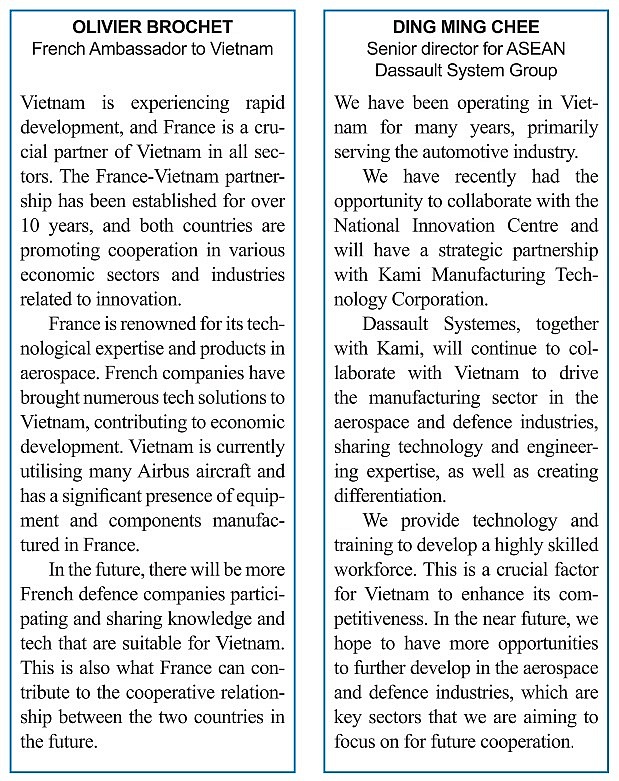 |
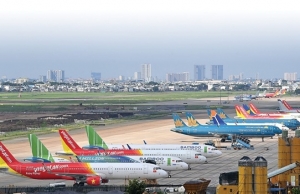 | Vietnam's aviation industry posts growth of nearly 42 per cent The domestic air passenger transport market has experienced a strong recovery, with an annual growth of 41.8 per cent recorded in the first seven months of 2023, announced the Civil Aviation Authority of Vietnam (CAAV). |
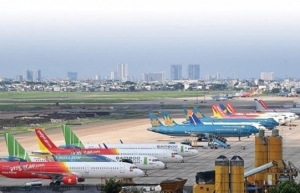 | Domestic aviation industry poised for full recovery in late 2024 Vietnam’s aviation market is expected to fully recover in late 2024, closely tied to the positive trajectory of the Asia-Pacific, according to the Civil Aviation Authority of Vietnam (CAAV). |
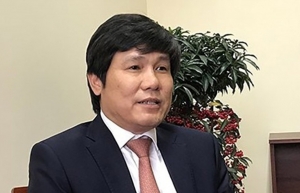 | Aircraft shortage should pose no effect on aviation recovery Vietnam’s aviation industry is being affected by an apparent shortfall of aircraft. Dinh Viet Thang, head of the Civil Aviation Authority of Vietnam, talked to VIR’s Thuy Nguyen about the reason behind the scenes and the possible solutions ahead to stabilise the market. |
What the stars mean:
★ Poor ★ ★ Promising ★★★ Good ★★★★ Very good ★★★★★ Exceptional
Related Contents
Latest News
More News
- Vietnam, New Zealand seek level-up in ties (February 19, 2026 | 18:06)
- Untapped potential in relations with Indonesia (February 19, 2026 | 17:56)
- German strengths match Vietnamese aspirations (February 19, 2026 | 17:40)
- Kim Long Motor and AOJ Suzhou enter strategic partnership (February 16, 2026 | 13:27)
- Haiphong welcomes long-term Euro investment (February 16, 2026 | 11:31)
- VIFC in Ho Chi Minh City officially launches (February 12, 2026 | 09:00)
- Norfund invests $4 million in Vietnam plastics recycling (February 11, 2026 | 11:51)
- Marico buys 75 per cent of Vietnam skincare startup Skinetiq (February 10, 2026 | 14:44)
- SCIC general director meets with Oman Investment Authority (February 10, 2026 | 14:14)
- G42 and Vietnamese consortium to build national AI infrastructure (February 09, 2026 | 17:32)

 Tag:
Tag:
















 Mobile Version
Mobile Version